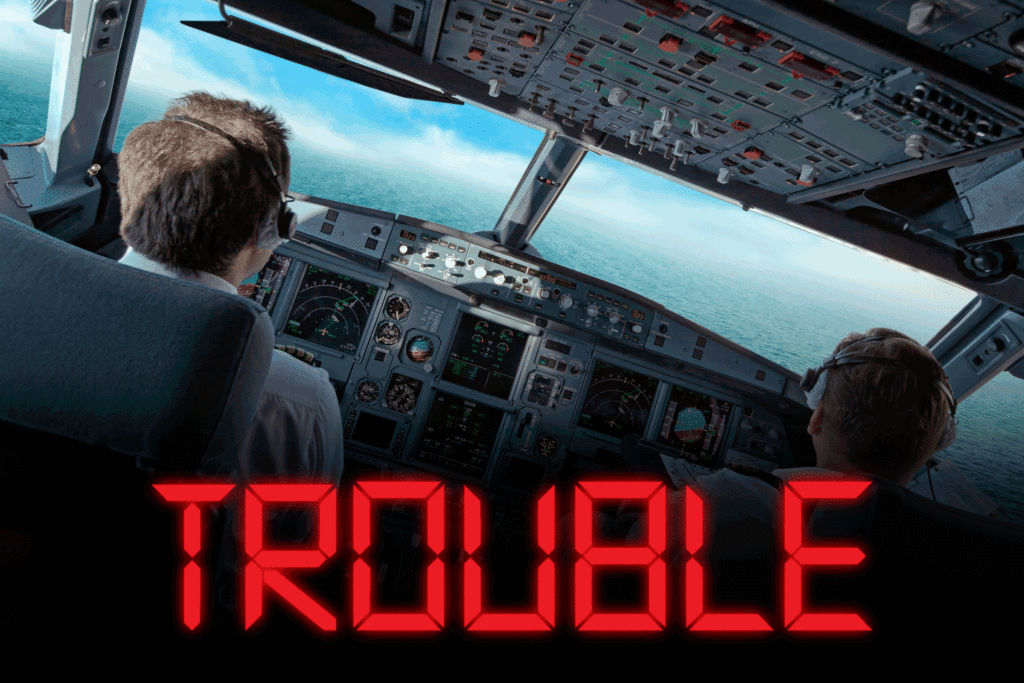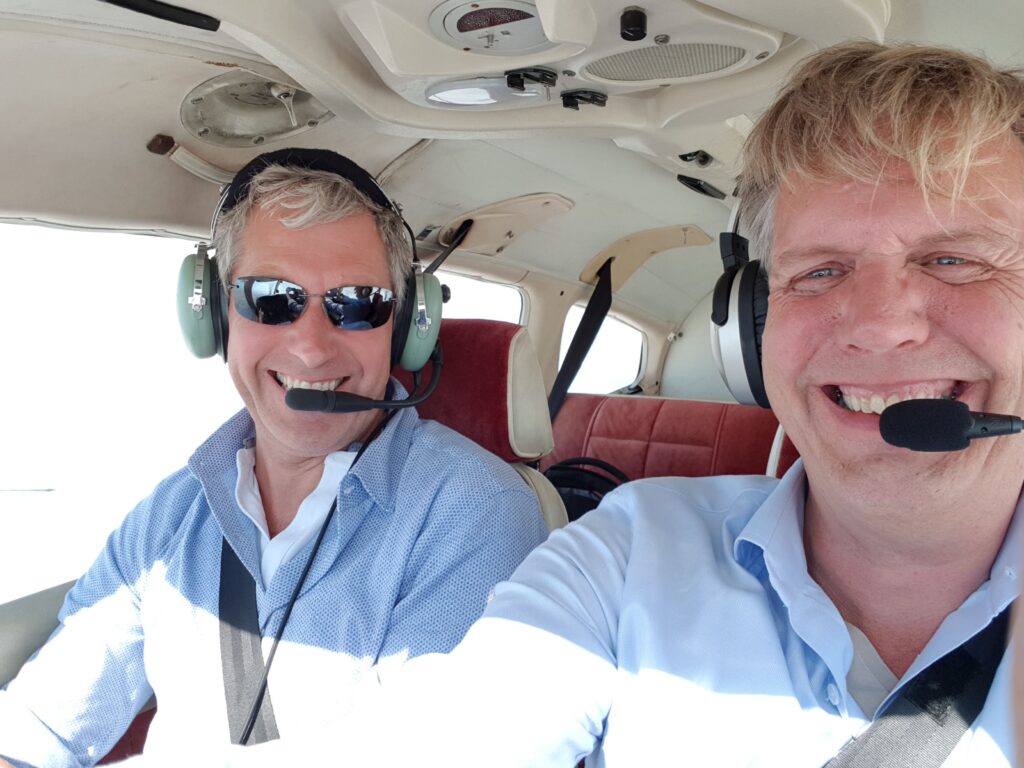“If you think you have everything under control, something is moving faster than you,” Mario Andretti once said, and that perfectly sums up 2024 for me. This year, I read an incredible number of books—whether that made me a wiser person is, of course, debatable. But I’m happy to share my reading list because books, like AI, are an endless source of inspiration and, occasionally, surprises. I could have written more this year, and I plan to make up for it in December. An exciting blog titled The Maintenance Race: Lessons from the Golden Globe Yacht Race of 1968 is on its way. But for now, let’s look back at 2024. What were the promises of this year, and did our expectations all neatly come to fruition, or were we completely blindsided by the developments that unfolded? What were those developments, and why did we miss them? Were we too naive? What’s in store for us in 2025, and how can we ensure we’re not caught off guard again?

How Accurate Was My 2024 Outlook?
Looking back, my 2024 predictions were a mix of hits and misses. At the end of 2023, I foresaw AI and automation playing a supportive role in project management. However, 2024 surprised me in ways I hadn’t fully anticipated. AI transcended its role as a mere tool to become a strategic partner, redefining how projects are planned, executed, and optimized. Advanced planning algorithms transformed scheduling from an art into a science, while real-time risk management became a game-changer in ensuring project success. Tools like ChatGPT and other AI-driven solutions fundamentally changed how I approached problem-solving, addressing challenges like inconsistent resource allocation and unanticipated risks. By leveraging these tools, I was able to create more accurate forecasting models, streamline task prioritization, and develop contingency plans that minimized disruptions. This evolution wasn’t just technological; it demanded a mindset shift, challenging me to rely on insights generated by algorithms while balancing them with human intuition.
What Truly Mattered in 2024?
“AI is a tool that amplifies human ingenuity, not a replacement for it.” — Satya Nadella, CEO of Microsoft
- Adaptability: The ability to be flexible in processes and strategies was crucial. For instance, during a major project delay caused by unforeseen supply chain disruptions, our team quickly shifted to alternative suppliers and revised timelines without compromising on quality. Additionally, adapting to the rapid adoption of AI tools required rethinking workflows and training team members to leverage new technologies effectively. This year taught me the value of pivoting quickly.
- Human Skills: Despite technological advancements, empathy, communication, and leadership remained indispensable. For example, when transitioning to remote work models during supply chain disruptions, fostering open communication and trust became key to maintaining team morale and productivity. These skills helped me connect and inspire my team.
- Ethics and AI: Transparency and accountability in AI applications became increasingly important. In one project, we faced a dilemma about whether to deploy AI tools that flagged risks but lacked explainability. Balancing the efficiency gains with ethical considerations forced us to create robust review processes to ensure fairness and transparency in our decision-making.
- Knowledge Sharing: Technology accelerated knowledge exchange within my projects. For example, we implemented collaboration tools that allowed team members across time zones to share insights in real-time. This enabled innovative problem-solving and helped us stay connected and agile despite operational hurdles.
Books That Inspired Me
“Adapting to AI isn’t about technology alone; it’s about rethinking how we work together.” — Günther Oettinger, former EU Commissioner for Digital Economy
This year, I found inspiration in several books that enriched my thinking about work and technology. Additionally, there are notable authors from the Netherlands and Switzerland worth mentioning, all published in 2024:
- Co-Intelligence: Living and Working with AI by Ethan Mollick: A guidebook for navigating the evolving world of AI, offering practical insights for leveraging AI as a collaborative partner in various roles.
- Supremacy” by Parmy Olson. Examines the rapid progression and impact of AI technology, focusing on key figures like Demis Hassabis of DeepMind and Sam Altman of OpenAI.
- The Nvidia Way by Tae Kim. Details Nvidia’s rise to prominence in the AI industry, highlighting CEO Jensen Huang’s leadership and the company’s culture of innovation.
- The Algorithmic Leader: How to Be Smart When Machines Are Smarter Than You by Mike Walsh. A strategic guide to AI leadership and making data-driven decisions.
- Human + Machine: Reimagining Work in the Age of AI by Paul Daugherty and H. James Wilson. Advocates for a synergistic approach to AI, emphasizing collaboration between humans and machines.
- AI 2041: Ten Visions for Our Future” by Kai-Fu Lee and Chen Qiufan. Explores scenarios for the future stages of AI development.
- Genius Makers: The Mavericks Who Brought AI to Google, Facebook, and the World by Cade Metz. Provides an inside look at the personalities behind the rise of modern AI.
My Outlook for 2025
“Project management is no longer about control but about facilitating creativity in a world driven by AI.” — Sundar Pichai, CEO of Google
What do I expect from 2025? A few trends I find both intriguing and inevitable:
- AI-First Project Management: As AI becomes an integral part of project management, I foresee tools evolving to act as virtual project managers. These tools will not only automate repetitive tasks but also provide strategic insights, creating a significant shift in how we manage teams and timelines.
- Greater Focus on Sustainability: Environmental and social impact will take center stage. Companies will increasingly prioritize projects that align with sustainability goals, integrating green technologies and ethical practices into their workflows.
- Hyper-Connectivity: The expansion of 5G and IoT will lead to more seamless and efficient collaboration across global teams. Real-time data sharing and advanced communication platforms will redefine how projects are coordinated.
- Elevating the Human Factor: While AI handles operational complexities, human creativity, emotional intelligence, and ethical decision-making will become irreplaceable. Leaders will need to focus on fostering these skills within their teams.
- Personalized Professional Development: With the rise of adaptive learning platforms, tailored career development programs will enable individuals to acquire specialized skills more effectively, keeping pace with technological advancements.
Conclusion
“Leadership in the digital age means combining technological acumen with emotional intelligence.” — Dr. John Kotter, leadership and change management expert
2024 taught me that change happens faster than we often anticipate. It was a year of growth, both professionally and personally. Technology supported me, but the core of success—people—remained unchanged. This year underscored the importance of adaptability, innovation, and resilience in navigating an ever-changing landscape. As we prepare for 2025, I reflect on the lessons learned: trusting AI as a partner, prioritizing sustainability, and embracing the human side of leadership. These principles will guide me as I step into the new year with both anticipation and readiness. And let’s be honest, the end of the year always feels a bit magical. The scent of Christmas trees and freshly baked cookies fills the air, while the sparkle of holiday lights reminds us to pause and savor these moments. As the New Year’s champagne chills and resolutions start to form, it’s a chance to dream big and plan boldly. So, whether you’re donning your ugliest Christmas sweater or toasting to fresh opportunities, let’s approach 2025 with optimism and determination. Remember: just as every successful project begins with a solid plan, every great year starts with the right mindset. Here’s to a phenomenal 2025—let’s make it count!





